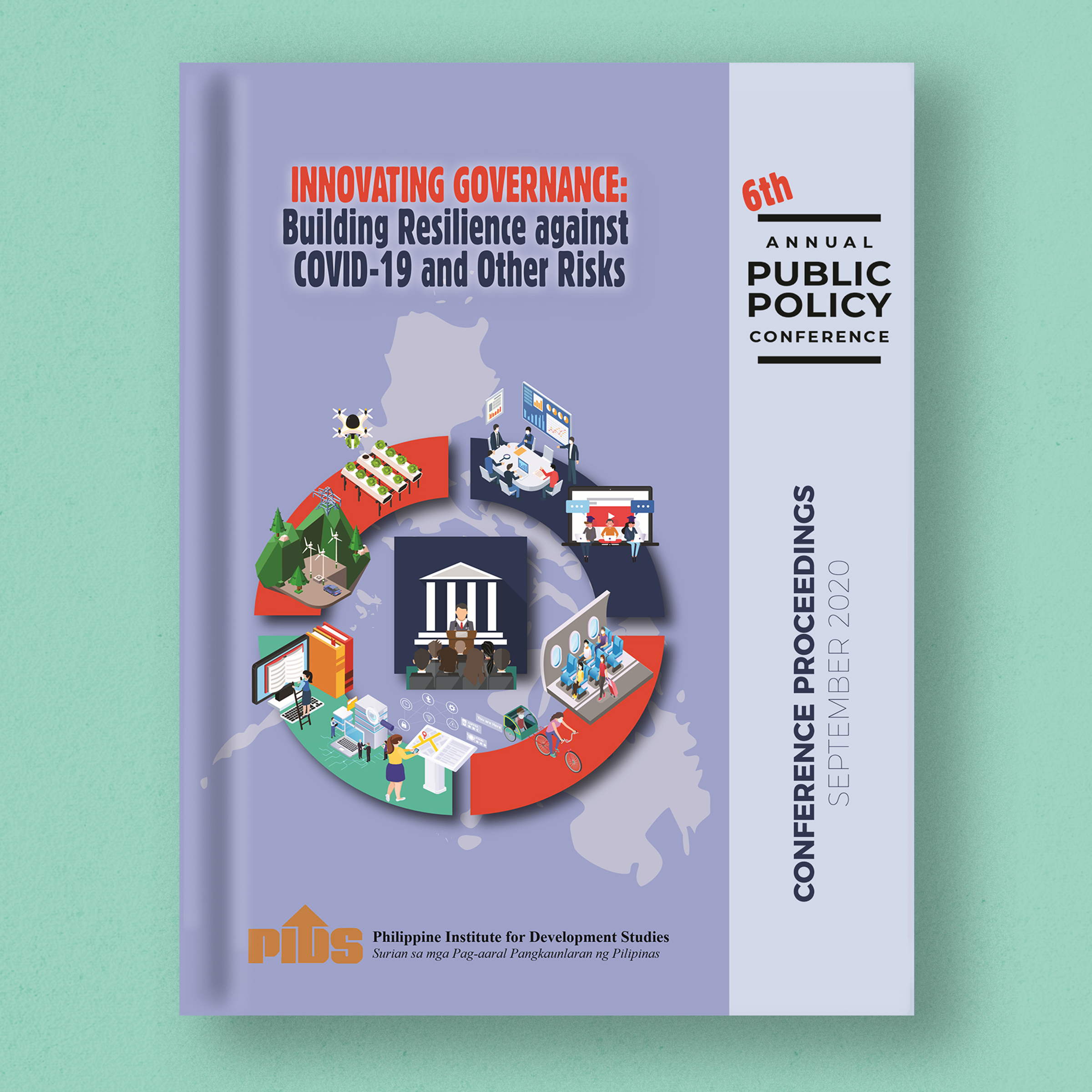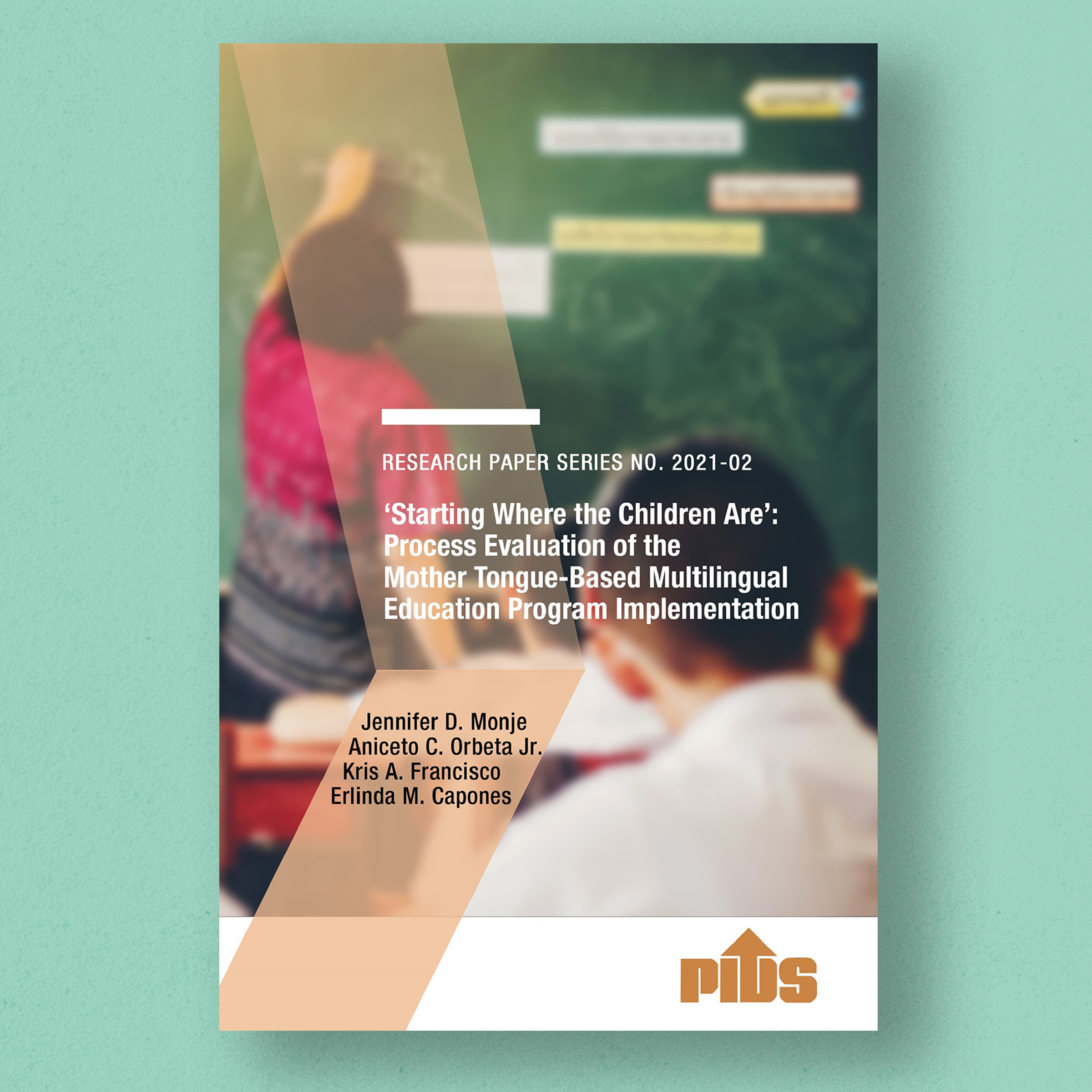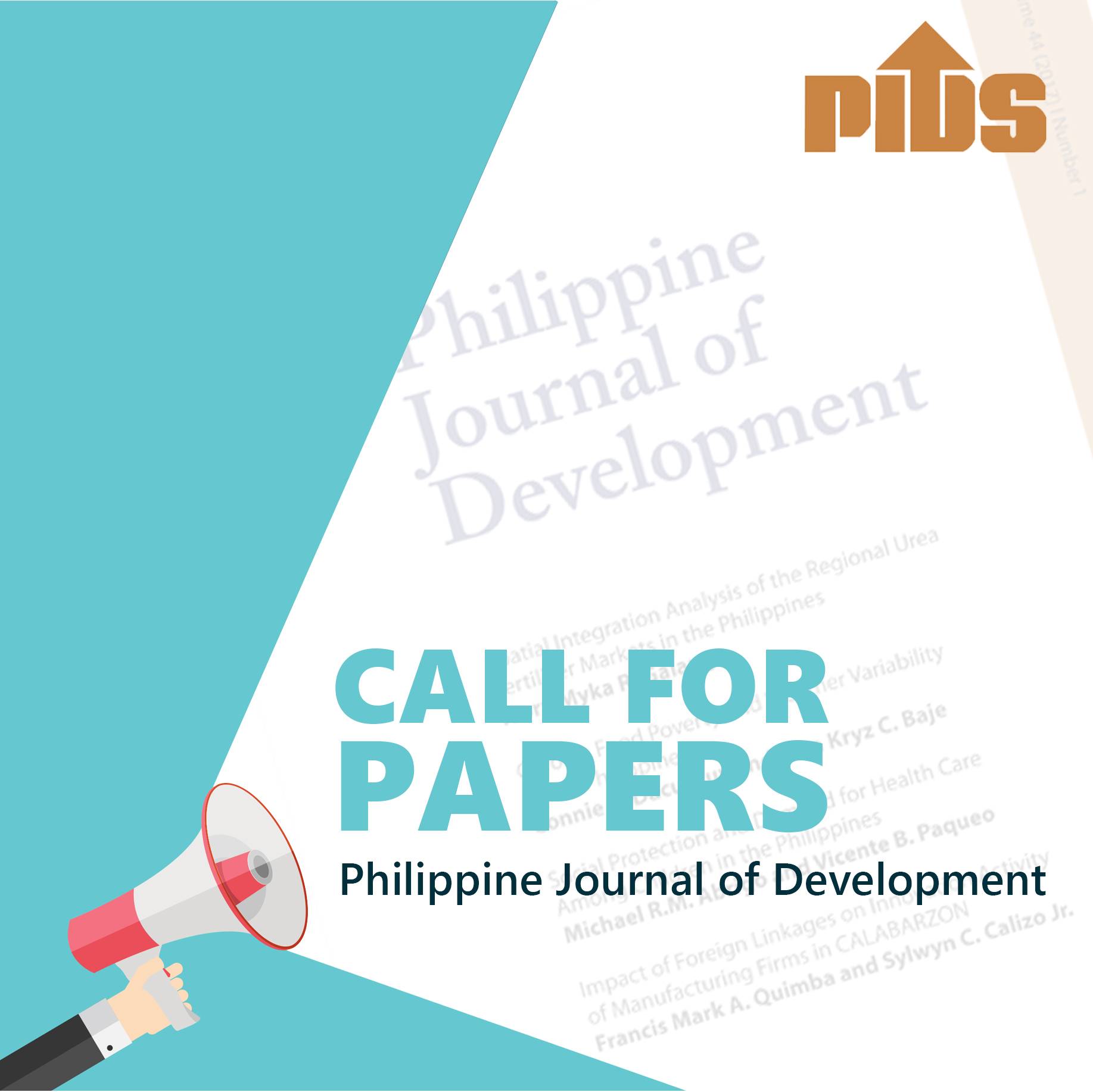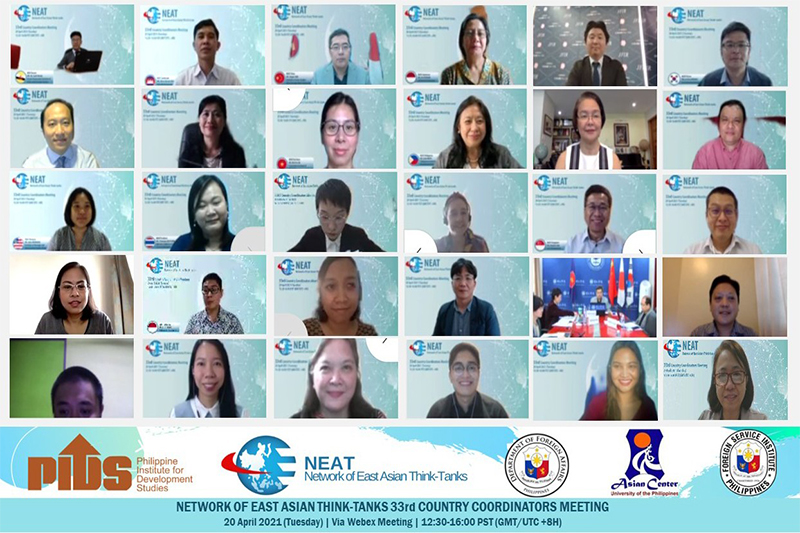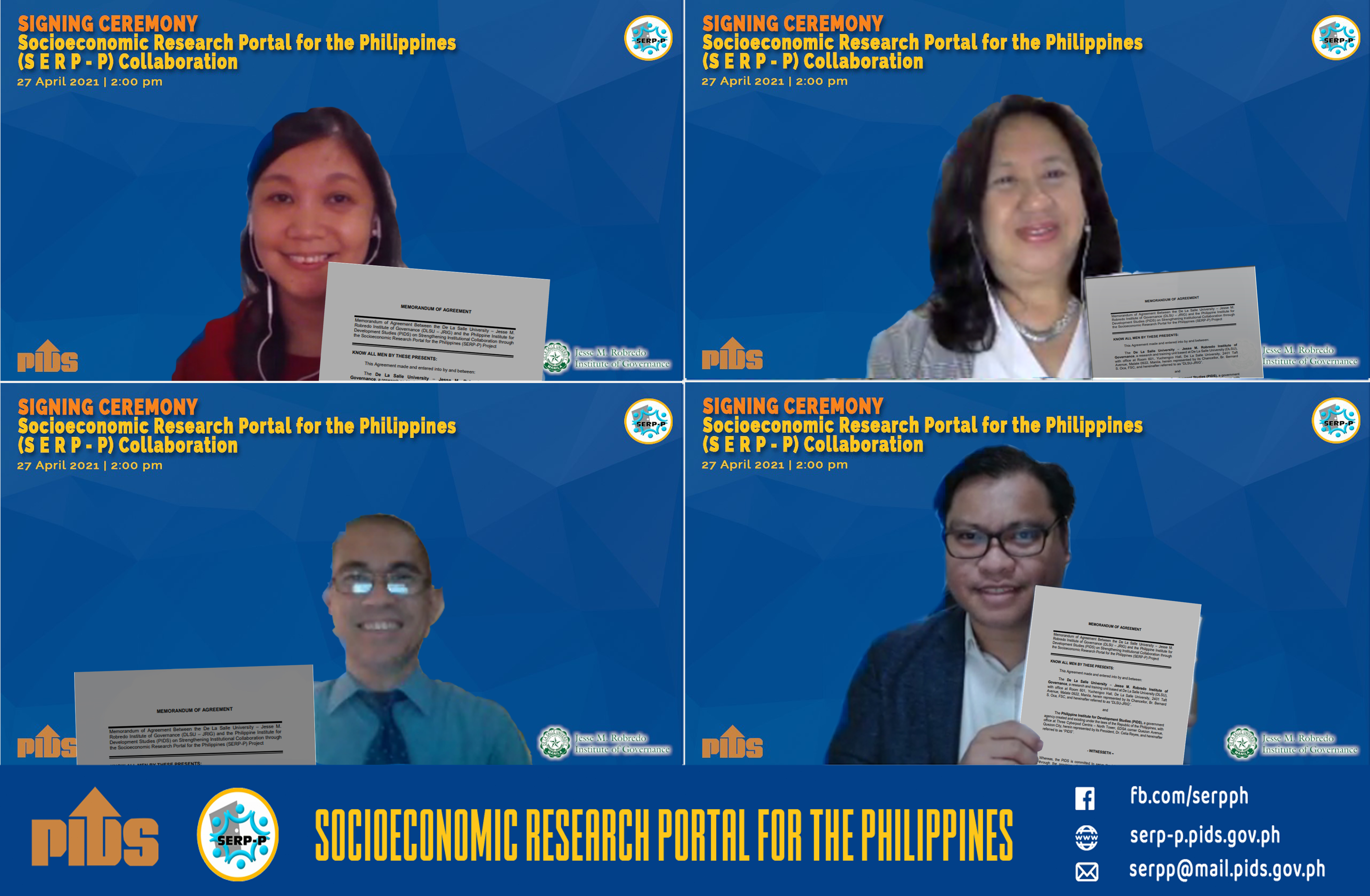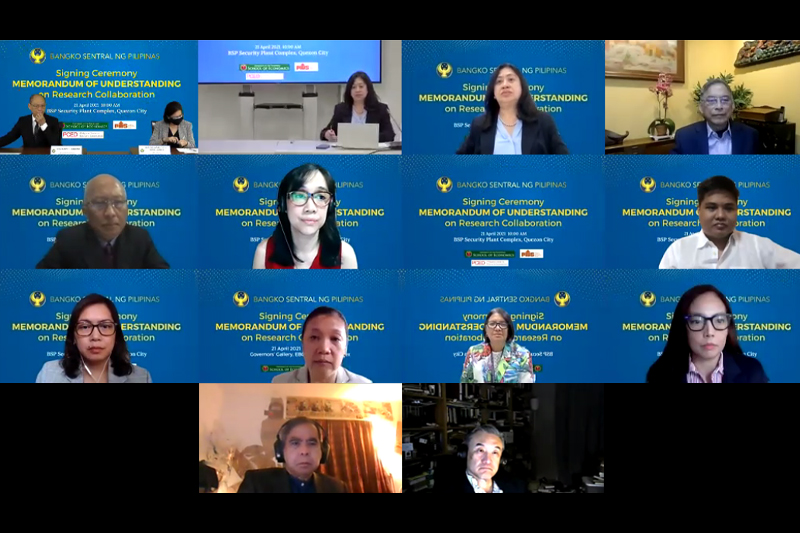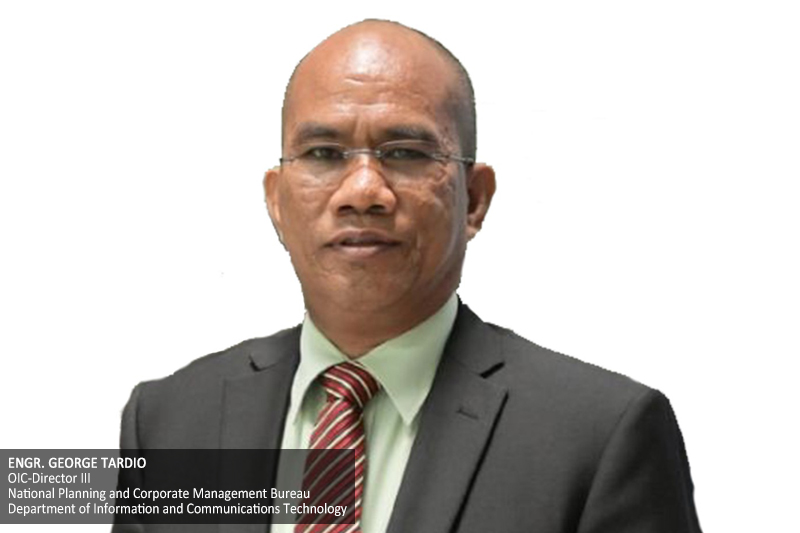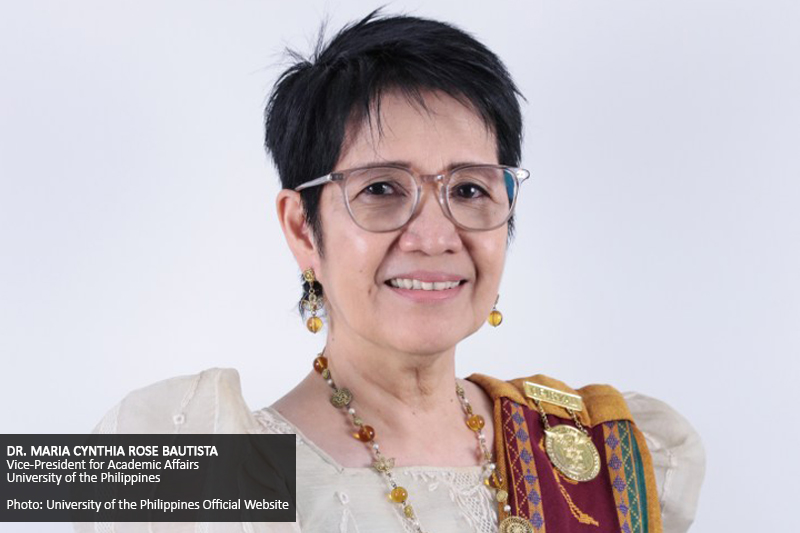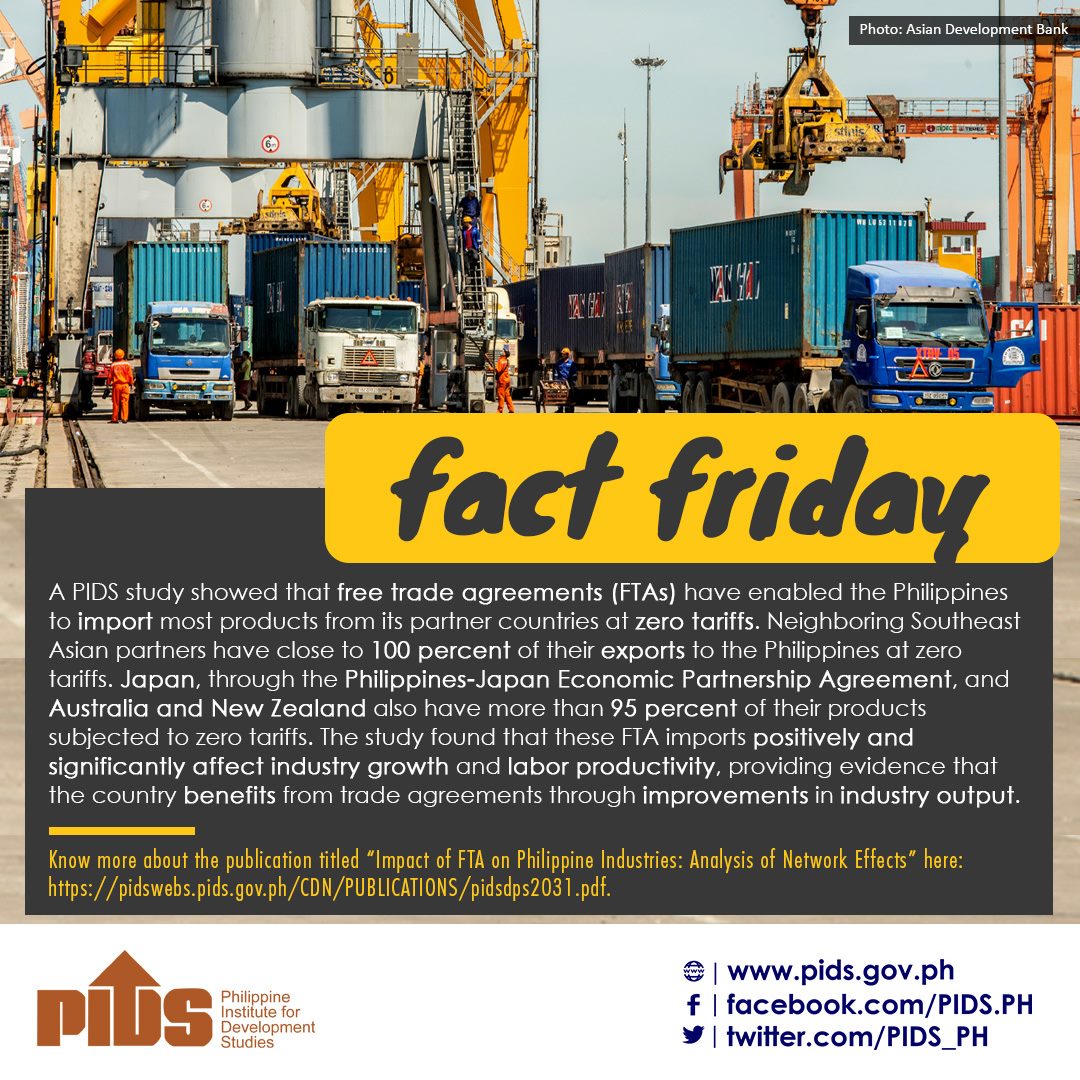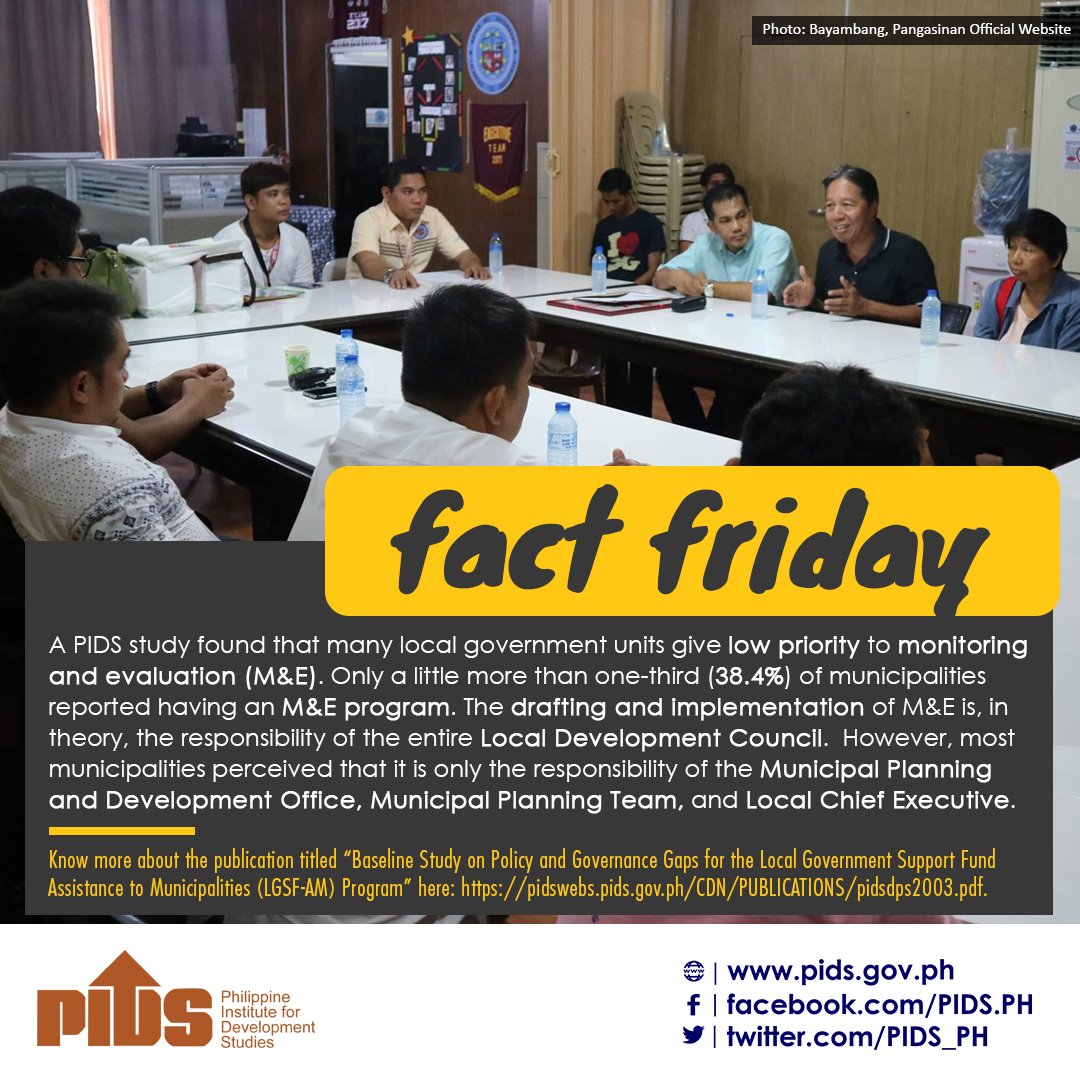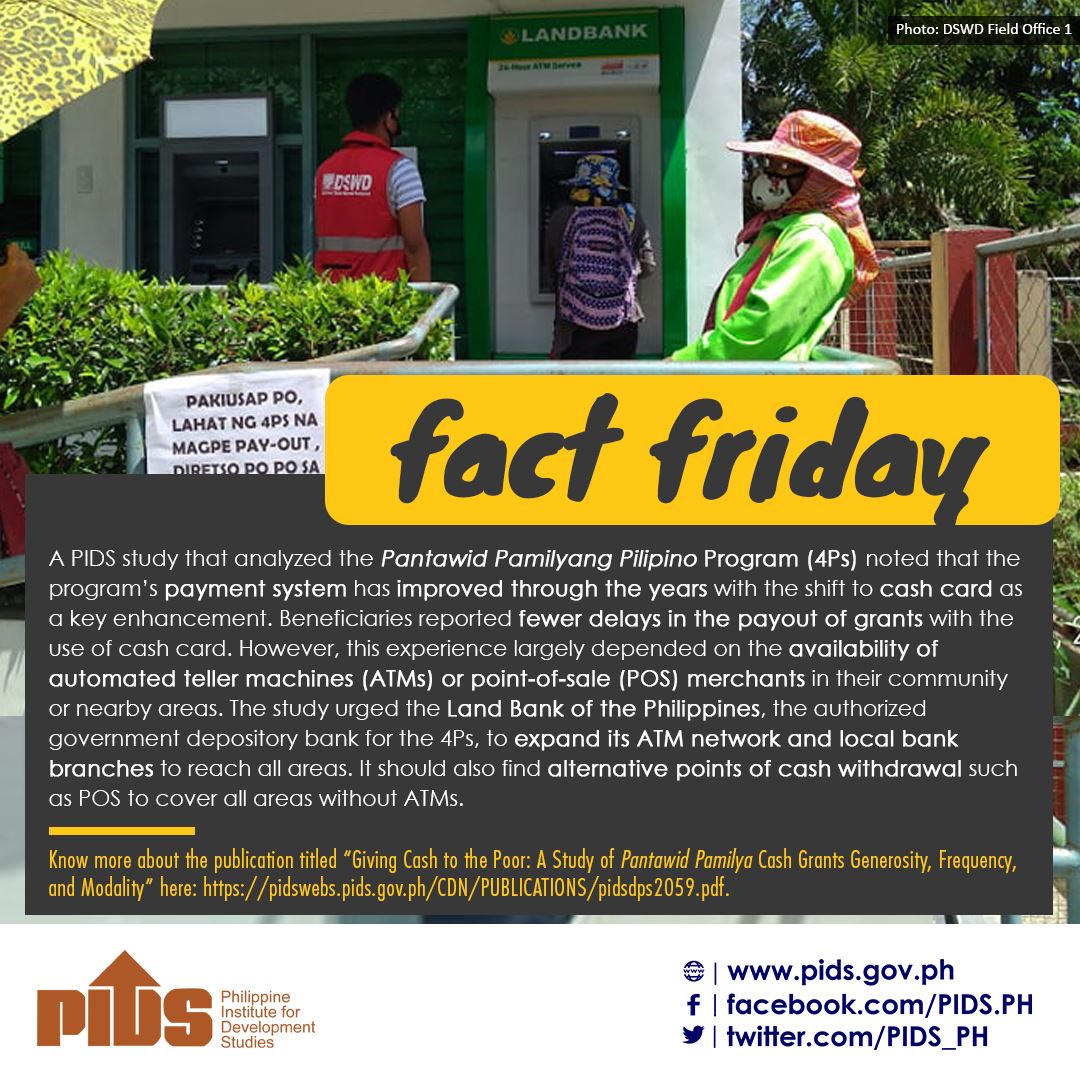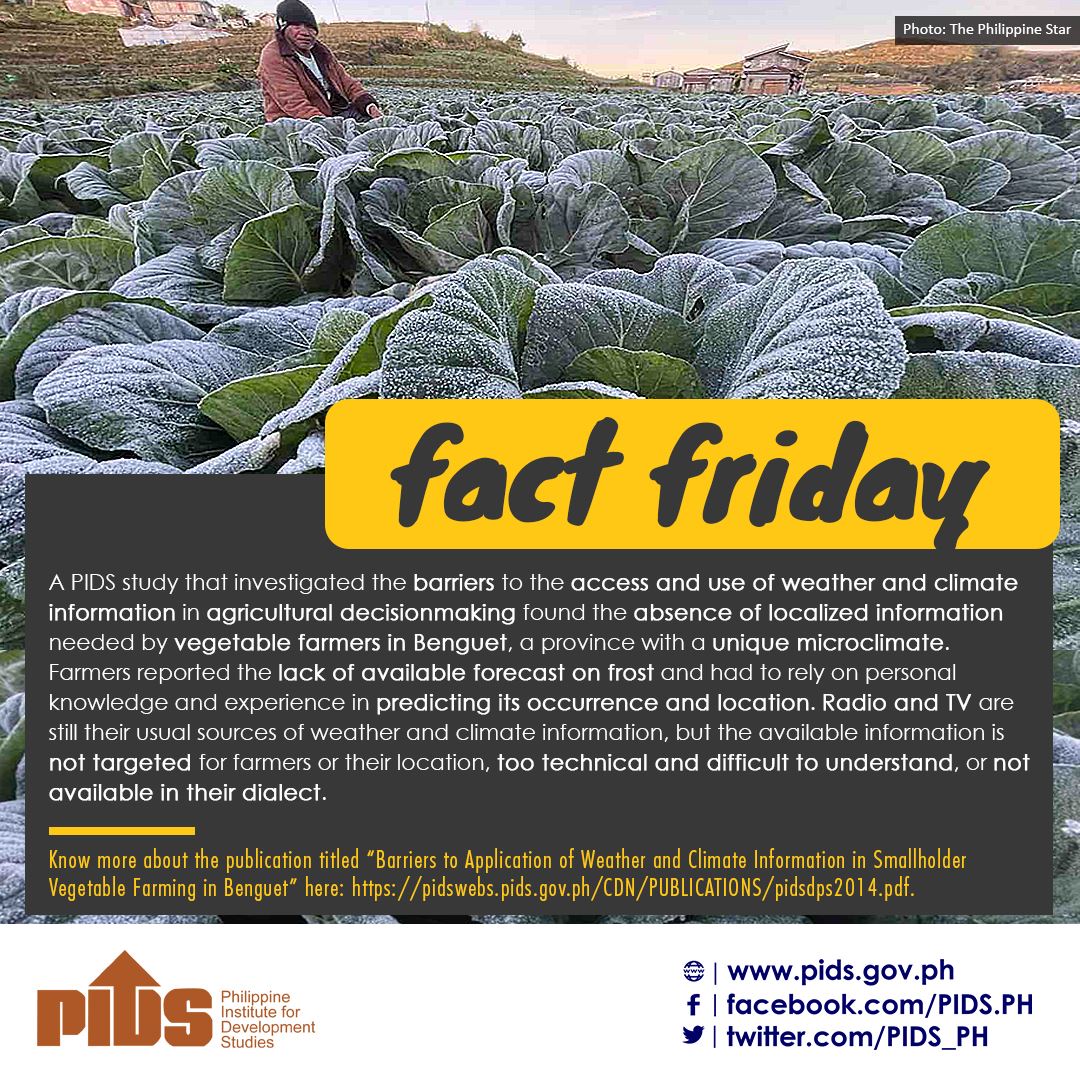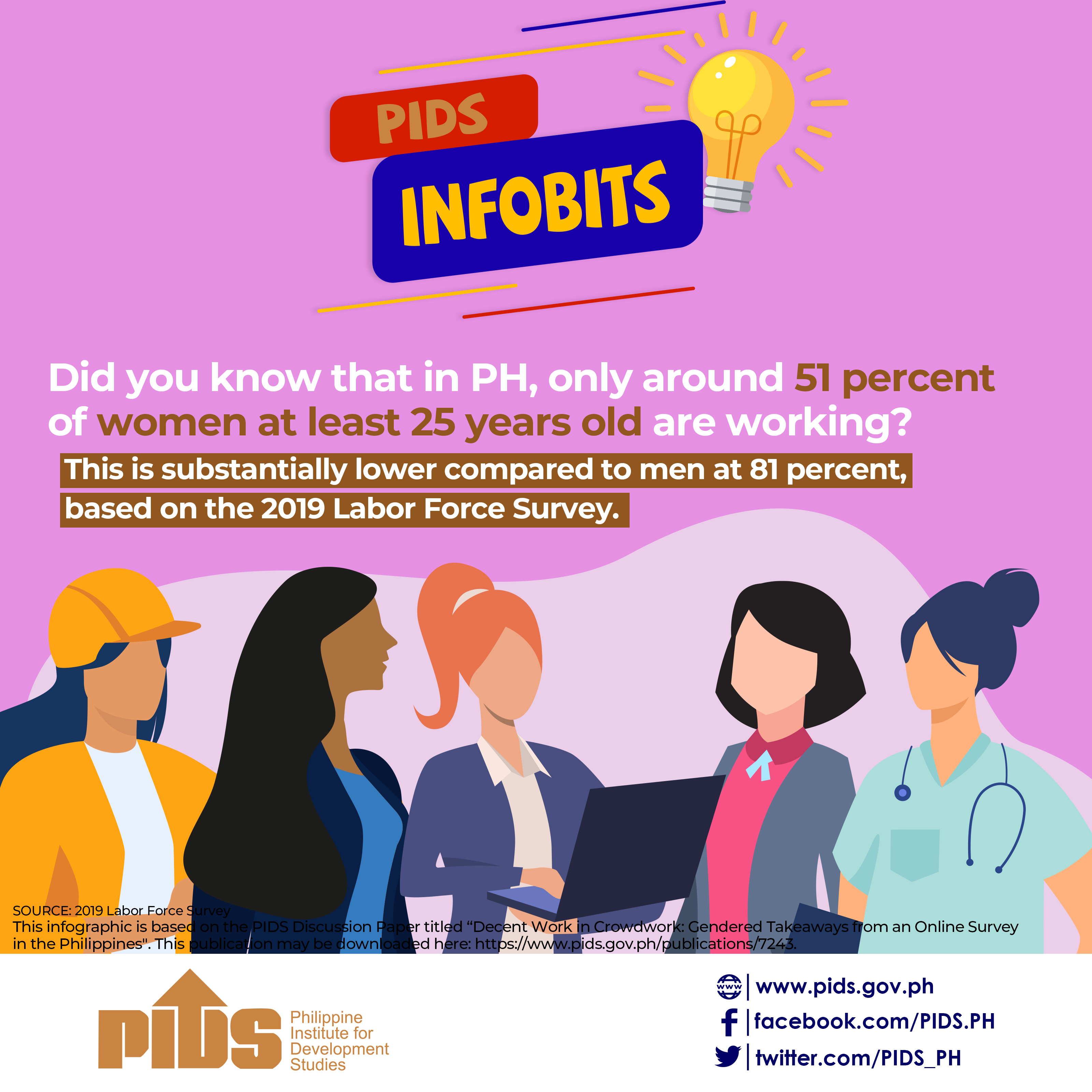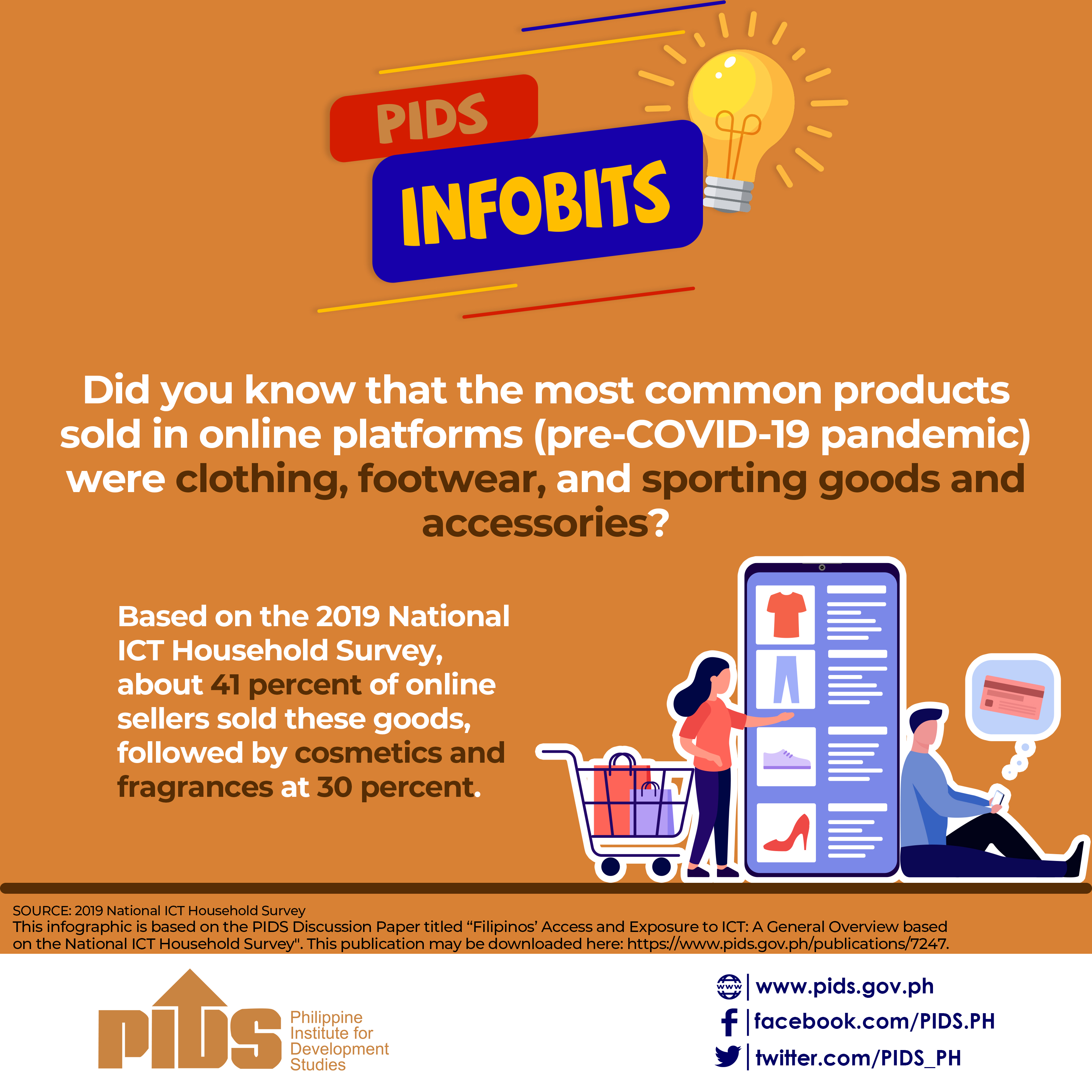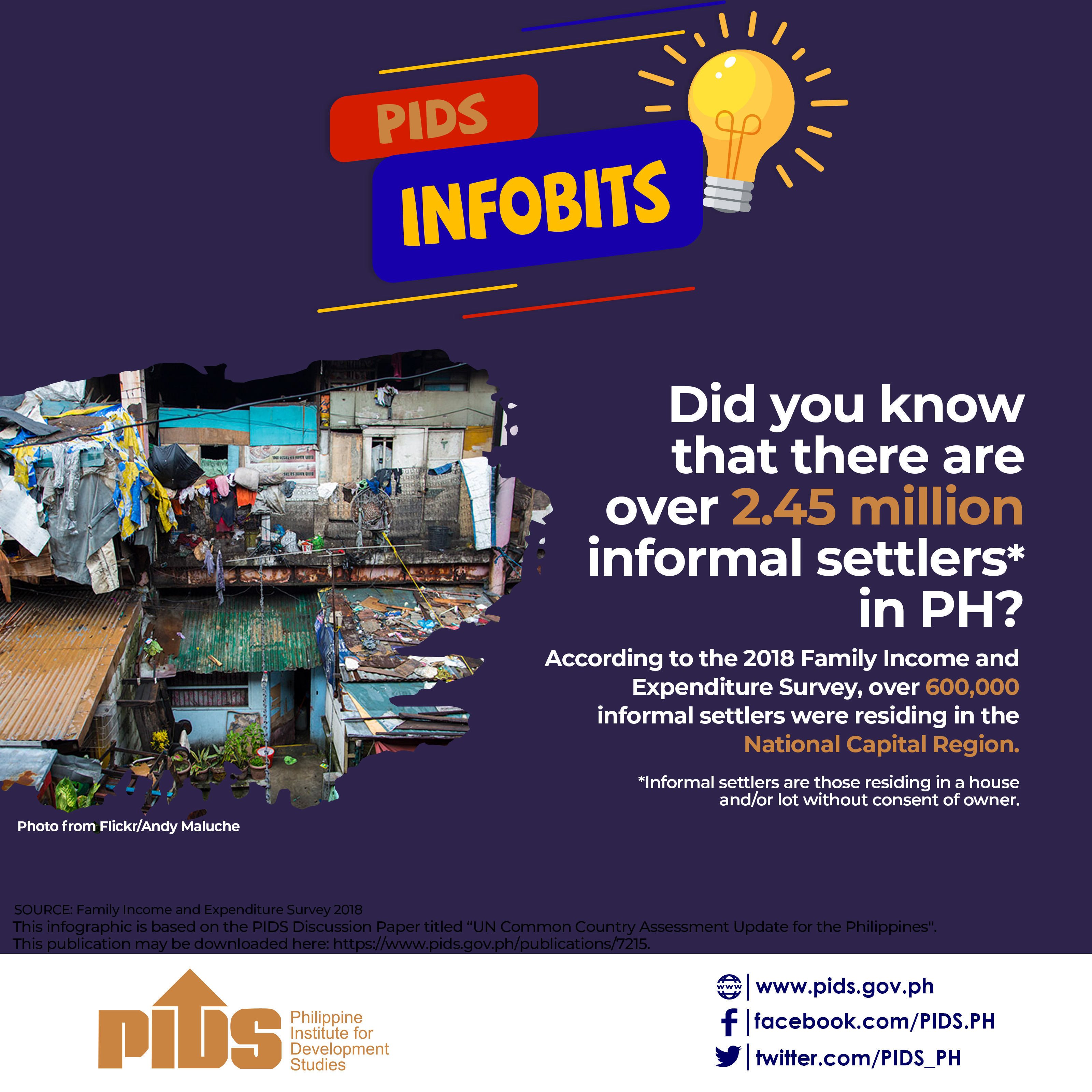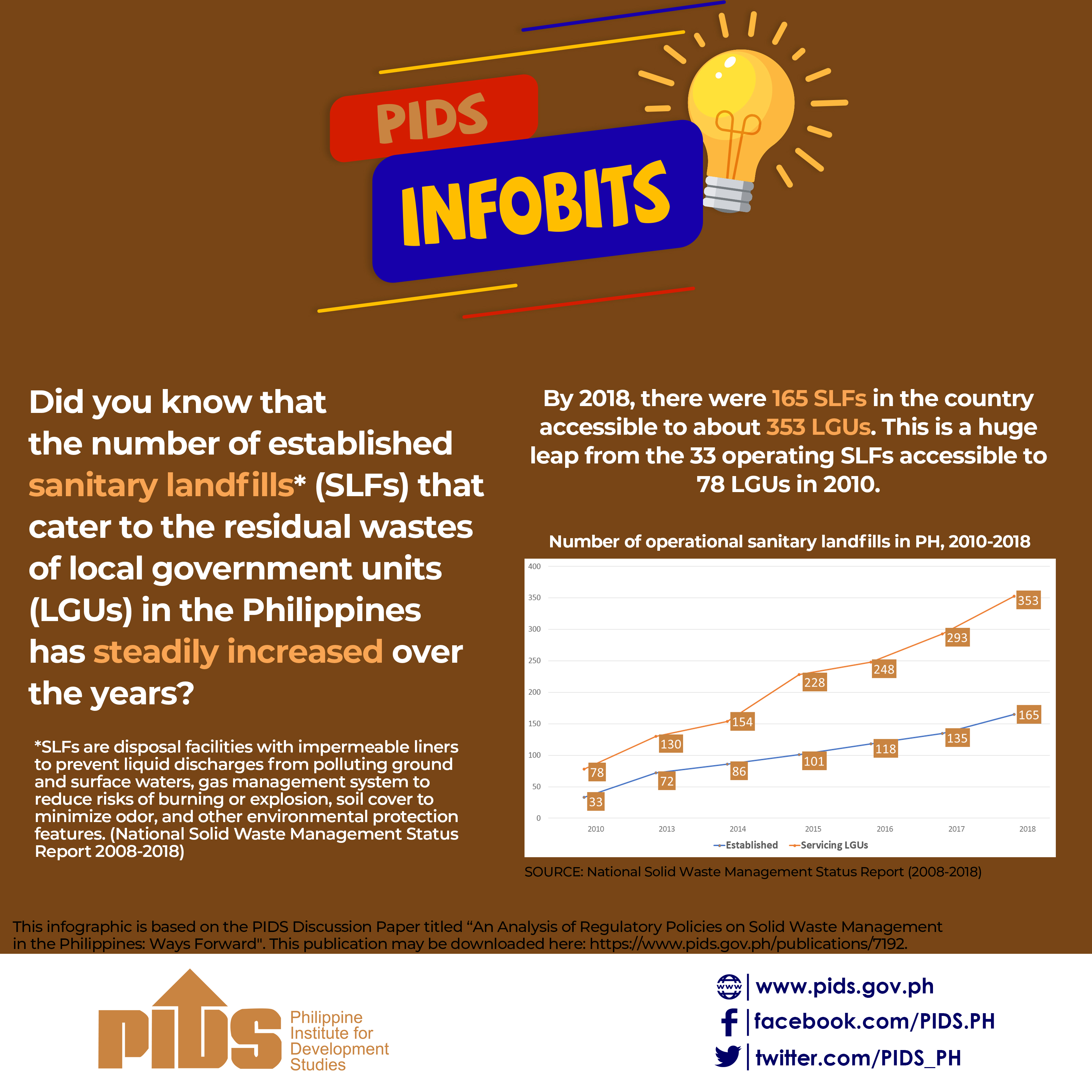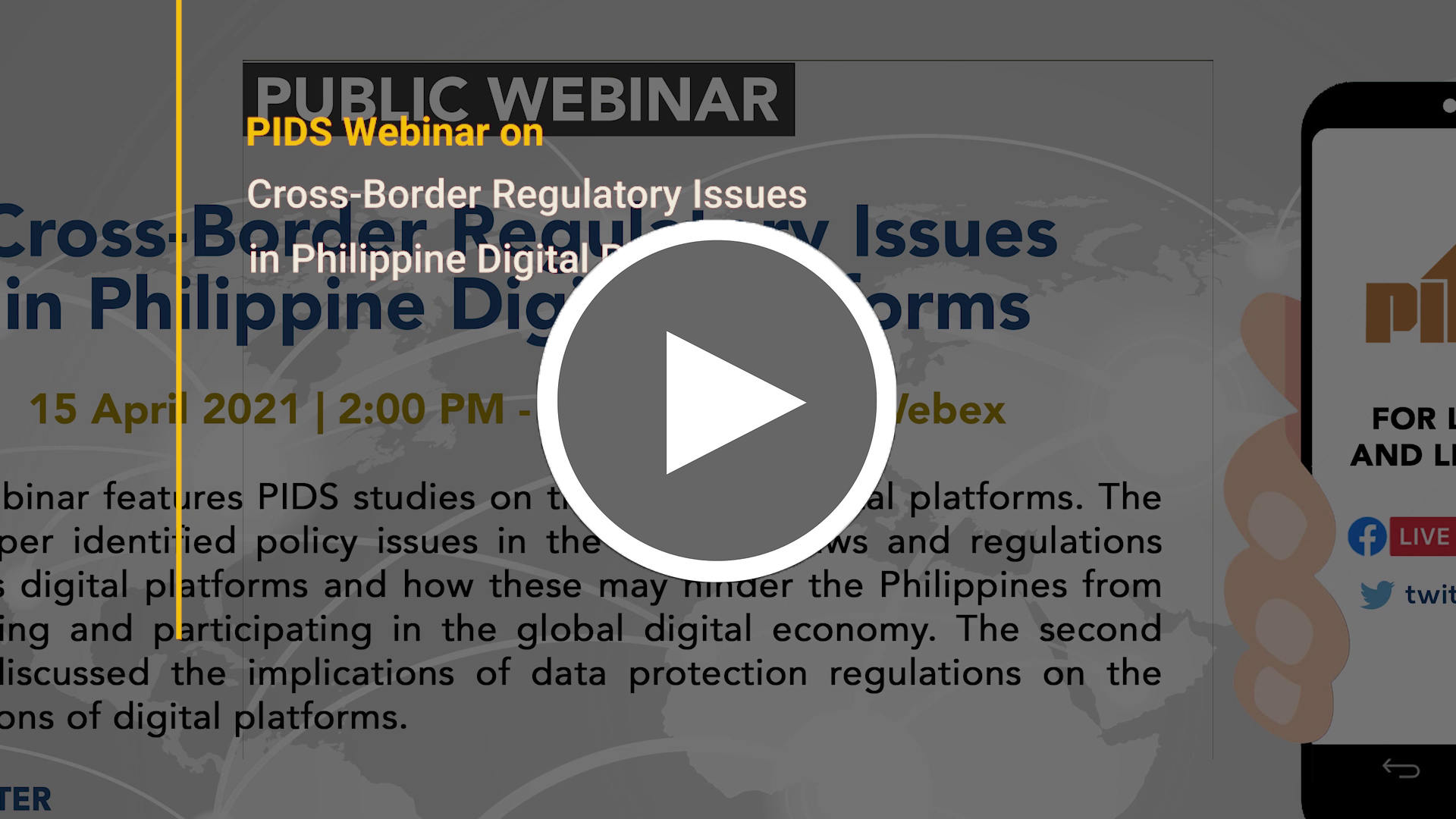Having trouble reading this email? View it in your browser. |
||||
 |
||||
|
||||
BOOK
The coronavirus disease 2019 (COVID-19) pandemic is by far the most challenging public health crisis the world has faced in a century. The Philippines has never been an alien to the impacts of this pandemic. This crisis has exposed serious governance issues, spanning from coordination failures to challenges in human resource capacity, which demand an immediate response from the Philippine government. To this end, the Philippine Institute for Development Studies has dedicated the Sixth Annual Public Policy Conference (APPC) to analyze the socioeconomic issues surrounding the COVID-19 pandemic. Under the theme, "Bouncing Back Together: Innovating Governance for the New Normal", this year's APPC covered topics relevant to the strengthening of governance systems and structures and adoption of forward-looking strategies that can empower the country in recovering from the blows of this crisis. This publication gathers the presentations and discussions during the four-part APPC webinar series. It provides government leaders, policymakers, the academe, and the public a trustworthy reference in making informed decisions amid the uncertainty the COVID-19 pandemic brings. Click here to download the book.
RESEARCH PAPER SERIES
This study evaluates the implementation of the Mother Tongue-Based Multilingual Education (MTB-MLE) program. Using qualitative methods consisting of key informant interviews with former and current Department of Education officials and focus group discussions with teachers and parents, it looked into the program theory, service delivery and utilization, and program organization. An online survey was also conducted to determine the extent of implementation at the school level. Findings show the breadth of challenges faced by the program from conceptualization to execution. It had to deal with linguistic diversity in the classroom, which challenges the primary model of implementation that assumes that a child is exposed to only one mother tongue rather than several. Another important conceptual issue is the lack of understanding and wrong appreciation of the basic rationale of the program among school implementers and parents. In terms of implementation, the program has been hampered by procurement issues and the lack of designated funds for operational activities, forcing it to compete with other school needs to fund its activities. Click here to download the research paper.
DISCUSSION PAPER SERIES DP 2021-15: Clean Energy Technology in the Philippines: Case of the Electric Vehicle Industry Electric Vehicles (EVs) have gained attention globally as countries pursue the use of alternative technologies that reduce harmful emissions, climate-related effects and reliance on the use of fossil fuels. In the Philippines, policies and programs in support of the EV industry have been implemented, while a pending legislation awaits enactment. In an attempt to contribute insights to the policy discussion on EVs, the study examines the EV industry in the Philippines, current regulations, and challenges faced by the industry. The study finds strengths and opportunities in the EV industry, which include positive industry outlook and prospects for manufacturing in the supply chain. It also identifies weaknesses and threats related to technology utilization and competition. The study also presents recommendations to take advantage of the industry's potentials. Click here to download the discussion paper.
|
April 29, 2021, 2:00PM-4:30PM May 13, 2021, 2:00PM-4:30PM May 20, 2021, 2:00PM-4:30PM May 27, 2021, 2:00PM-4:30PM
|
|||
The Philippine Institute for Development Studies (PIDS), in partnership with the Department of Foreign Affairs-Office of ASEAN Affairs, University of the Philippines (UP)-Asian Center, Foreign Service Institute, and selected Philippine experts on regional integration, hosted the 33rd Country Coordinators Meeting of the Network of East Asian Think-Tanks (NEAT) on April 20, 2021.
The Philippine Institute for Development Studies (PIDS) and the De La Salle University- Jesse M. Robredo Institute of Governance (DLSU-JRIG) forged a partnership recently through the Socioeconomic Research Portal for the Philippines (SERP-P) project led by PIDS.
The Philippine Institute for Development Studies (PIDS) entered into a memorandum of understanding (MoU) with the Bangko Sentral ng Pilipinas (BSP) to explore opportunities for cooperation in the field of monetary and fiscal policies. Under the MoU, PIDS and BSP agreed to collaborate on research studies that will provide better understanding and sound recommendations related to monetary and financial policies. READ MORE
 Gov't support, crucial to PH tech startups' growth amid COVID-19 pandemic
Gov't support, crucial to PH tech startups' growth amid COVID-19 pandemic
The agility and ability of the government to provide interventions and policies are crucial for technology startup companies in the country to thrive amid the pandemic. Chan, a discussant at the webinar, said the country has a huge potential in creating technology startups “largely because of the domestic market”. READ MORE
The government should address issues and challenges in online work such as digital divide, the lack of digital infrastructure, and weak social protection schemes. Chua, a discussant at the webinar, said the country benefits from digital economy in terms of employment opportunities, gender equality, and poverty eradication. READ MORE
The COVID-19 pandemic has accelerated the use of digital technologies that enable telecommuting and virtual collaboration schemes. However, it has also magnified social protection issues faced by online or platform workers, including the lack of security benefits and protection entitlements. This was according to Department of Information and Communications Technology (DICT) National Planning and Corporate Management Bureau OIC-Director George Tardio, who served as a discussant during a webinar on online and platform work recently organized by the Philippine Institute for Development Studies (PIDS).
State think tank Philippine Institute for Development Studies (PIDS) welcomes the appointment of Dr. Maria Cynthia Rose Bautista as the newest member of its board of trustees (BOT). The PIDS BOT is chaired byActing Socioeconomic Planning Secretary Karl Chua. Members include PIDS President Celia Reyes, University of the Philippines’ (UP) Philippine Center for Economic Development Fellow Atty. Raphael Lotilla, and former PIDS President Gilberto Llanto. READ MORE
Women are more likely to participate in platform work given the flexibility it provides, according to a discussion paper published by state think tank Philippine Institute for Development Studies (PIDS). However, they raised the need to analyze the issues that come with platform work to “prevent the widening and deepening of existing inequalities, to ensure decent work in platform work, and to ensure that the work is inclusive and sustainable”. READ MORE
The “complex and multifaceted” nature of the digital economy creates tax issues, according to a study published by state think tank Philippine Institute for Development Studies (PIDS). Cuenca underscored that the taxation of intangibles constitutes an immense challenge to policymakers as the current international tax framework is designed for “brick and mortar” businesses or “companies that have a physical presence or permanent establishment that is used to assign tax jurisdiction”. READ MORE
|
||||
FACT FRIDAY
INFOBITS
Watch these videos and get a glimpse of the highlights of our webinars on "Social Protection, Digital Divide, and Other Issues in Online/Platform Work" held on April 8, "Cross-Border Regulatory Issues in Philippine Digital Platforms" held on April 15, and "Assessing National Government Support Programs for LGUs and Local Provision of Water Supply" held on April 22.
|
||||
Need help? Have feedback? Feel free to contact us. |
||||
